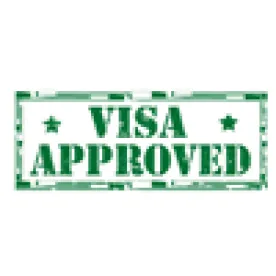On November 20, 2014, President Obama announced a series of much-anticipated executive actions directing changes in our nation's immigration system. Although the attention has been largely focused on the provisions of the executive actions relating to undocumented aliens, the executive actions also direct numerous changes to employment-based immigration. Those changes include the following:
Although many details regarding how the executive actions will impact employment-based immigration still need to be worked out, the new rules required by the executive actions will likely have a significant impact on employment-based immigration strategy.
-
Employment Authorization for Certain H-4 Spouses. The H-1B program allows certain professional workers (that is, workers who have at least a bachelor's degree and who are working in a job that requires that degree) to obtain employment in the U.S. for up to six years (or longer, for H-1B employees whose green card application has reached certain milestones). For most workers who are in the U.S. in H-1B status, their spouses and dependent children have derivative H-4 status. Under current rules, persons in H-4 status are not authorized to be employed in the U.S. The executive actions require the Department of Homeland Security to finalize a rule by January 15, 2015, that will allow certain H-4 spouses of H-1B employees to obtain employment authorization. In order for the H-4 spouse to be eligible for this benefit, the H-1B employee will need to be the beneficiary of an approved Form I-140, Immigrant Petition for Alien Worker.
-
Pre-Registration for Adjustment of Status. Due to quotas that are placed on most employment-based green card categories, many green card applicants endure long waits before a green card becomes available. During the waiting period, a green card applicant may not file an adjustment of status application, which is usually the final step in the green card process. An adjustment of status applicant may apply for employment authorization and permission to return from travel abroad for so long as his or her adjustment of status application remains pending.
The executive actions call for the establishment of a "pre-registration" system for adjustment of status. Specifically, an individual who is the beneficiary of an approved Form I-140, Immigrant Petition for Alien Worker, will be able to obtain the benefits of an adjustment of status application (e.g., employment authorization and permission to travel) even though a green card is not currently available to the individual due to existing quotas. Presumably, spouses and dependent children of the principal green card applicant will also be able to pre-register and obtain these same benefits.
This change could open up new options for employers seeking to employ foreign workers. For example, in 2014, more than half of the H-1B petitions that were filed were rejected due to the annual quota on new H-1B petitions. For most of these employers, sponsoring the employee for a green card made little sense because of the many years it would take to obtain employment authorization based on such a green card case. With pre-registration, employers may find sponsoring a prospective employee for a green card to be a viable alternative to the H-1B program. Pre-registration may also make employers more willing to sponsor green card cases for employees in jobs that do not qualify for H-1B status, such as registered nurses who do not have a bachelor's degree in nursing.
-
Increased Job Portability for Green Card Applicants. As noted above, employees applying for a green card must often wait many years for their green card to become available. In many cases, a new green card process must be started if, during that waiting period, the employee changes employers or takes a new position with the same employer that sponsored his or her green card application. The executive actions direct the Department of Homeland Security to make regulatory changes to allow these workers to move or change jobs more easily. The regulations are expected to provide clarity on employment portability by removing unnecessary restrictions on natural career progression and general job mobility for workers facing lengthy adjustment of status delays.
-
PERM System to be Modernized. Many employment-based green card applications begin with the employer testing the labor market for available U.S. workers, in a process commonly known as "PERM." The recruiting required by the PERM process includes steps that are not commonly used by employers in a normal recruiting process, such as placing two Sunday print ads in a newspaper. The executive actions direct the Department of Labor, which oversees the PERM process, to modernize the labor market test through the issuance of new regulations.
-
Further Guidance on Specialized Knowledge L-1B Petitions. The L-1B program allows multinational companies to bring certain employees from their foreign affiliates to the U.S., provided they have "specialized knowledge" regarding certain aspects of the employer's business. Obtaining L-1B status has become increasingly difficult in recent years due to a narrow interpretation of what constitutes specialized knowledge. The executive actions direct the Department of Homeland Security to clarify its guidance on the meaning of "specialized knowledge" to bring greater clarity and integrity to the L-1B program, to improve consistency in adjudications, and to enhance companies' confidence in the program.
-
Expand and Extend Optional Practical Training (OPT) for Foreign Students. The executive actions require the Department of Homeland Security to propose changes to expand and extend the use of the existing Optional Practical Training (OPT) program and require stronger ties between OPT students and their colleges and universities following graduation. It is likely that these new rules will only be directed toward foreign students studying science, technology, engineering, and mathematics (STEM) at U.S. universities.
-
Added Benefits for Foreign Investors, Researchers, Inventors, and Founders of Start-Up Companies. The executive actions promise expanded immigration benefits for foreign investors, researchers, inventors, and founders of start-up companies. New rules will be issued that will clarify the standard by which these individuals may be granted a national interest waiver, which allows a person to seek a green card without the need to test the labor market for available U.S. workers. In addition, new rules will authorize parole (i.e., the ability to lawfully enter and remain in the U.S.), on a case-by-case basis, to eligible investors, researchers, inventors, and founders of start-up enterprises who may not yet qualify for a national interest waiver, but who:
-
Have been awarded substantial U.S. investor financing; or
-
Otherwise hold the promise of innovation and job creation through the development of new technologies or the pursuit of cutting-edge research.
-




 />i
/>i

